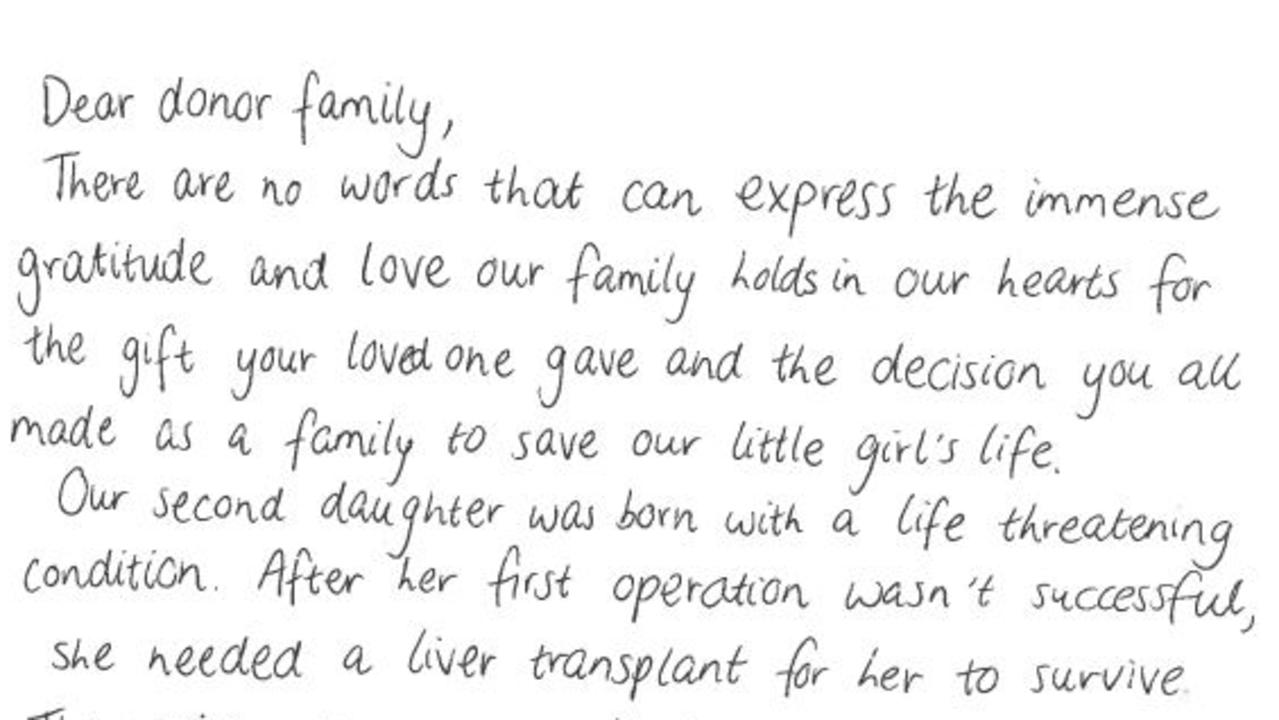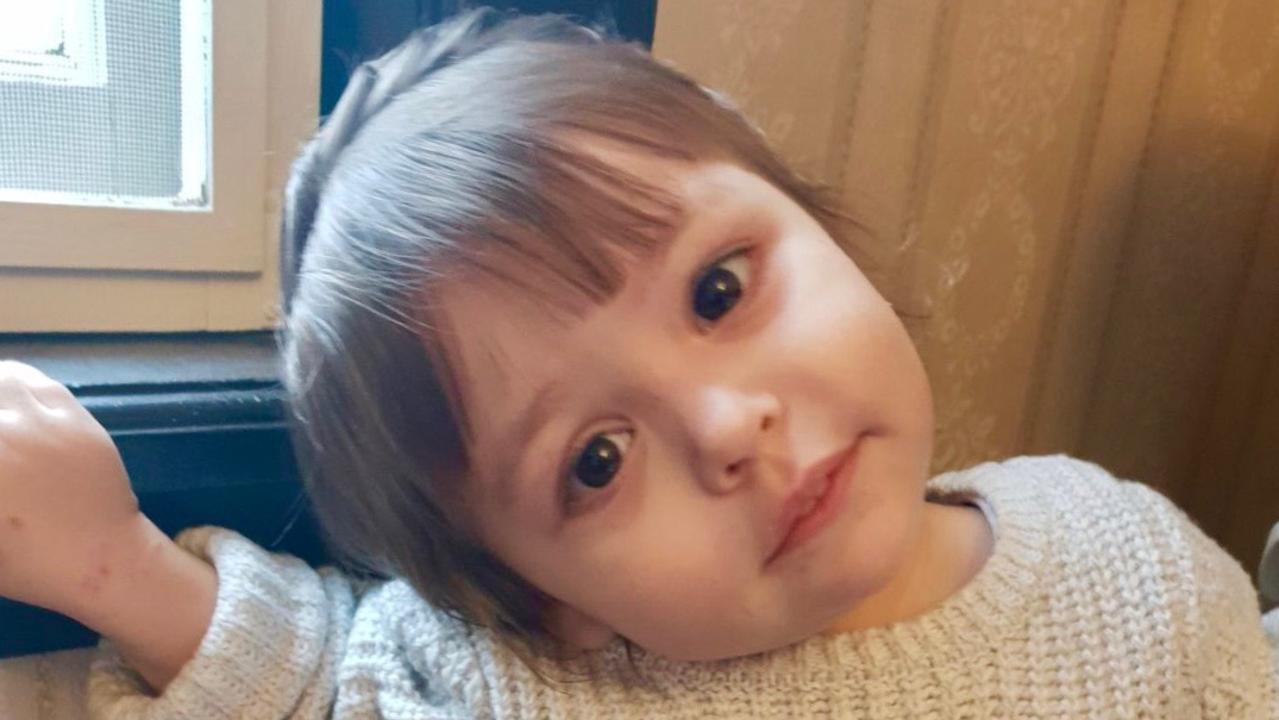Why news.com.au is supporting the DonateLife Week campaign for organ donation, and you should too
YOU only need to take a minute to save a life. That’s the message behind our push for more Aussies to become organ donors.

DID you know you only need to take one minute to save a fellow Aussie’s life?
That’s the message news.com.au wants to get out with the Take A Minute, Save a Life campaign, a push for more Australians to become organ donors.
During DonateLife week from Sunday, July 29, to Sunday, August 5, news.com.au will share a series of inspiring stories to show how signing up to the national organ donor registry not only changes lives — it saves lives.
We are putting our support behind DonateLife Week to bust the myths around organ donation and the process that has stopped 70 per cent of Australians from registering, and to encourage more people to sign up to the Australian Organ Donor Register.
With 9 million readers on news.com.au each month, we want to use this audience to help bring about positive change on important issues.
Organ donation is something that can make a big difference in people’s lives but getting a transplant is not guaranteed for patients with life-threatening conditions.
SIGN UP NOW: To become a registered organ donor, click here
STEP-BY-STEP: How to save a life in one minute
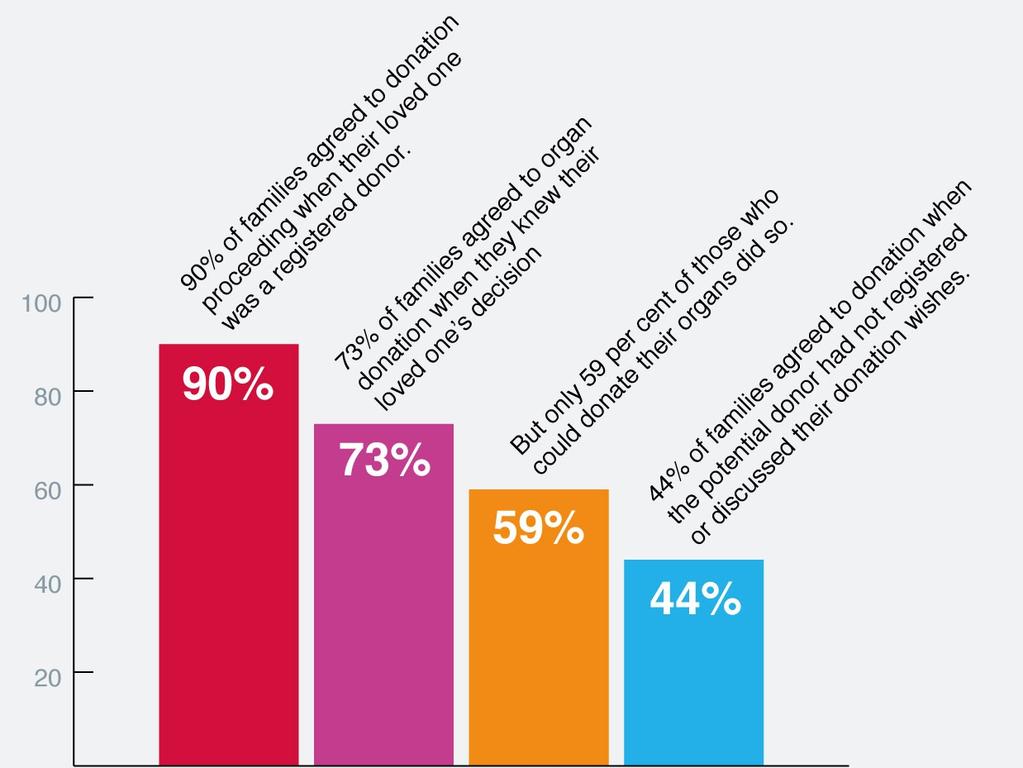
This is partly because it is extremely rare to die in circumstances that make it possible for a donation to happen. Just 2 per cent of people who die in hospital do so in a way that allows them to donate.
Last year, the families of just 1093 people were asked to consider organ donation, a tiny fraction of the more than 100,000 Australians who die every year.
Of these only 510 went on to donate their organs.
Less than half of those on the waiting list were able to get a new organ and, sadly, 35 people died.
News.com.au believes this can be changed. Research shows most Australians support organ donation, but only 30 per cent have registered to do so.
Statistics show 90 per cent of families agreed to the donation going ahead if their loved one had registered. It’s crucial for people to tell their families about their registration as the donation won’t go ahead if they don’t agree.
Taking these small steps could make a big difference in someone’s life.
It’s hoped that Australians everywhere will Take a Minute, Save a Life.
‘HE STOPPED BEING NATHAN THEN AND THERE’
The phone calls from the hospital social worker and knocks on the door from police came in quick succession.
Rob Kinny, 61, was the only parent home when he was told that his youngest son, Nathan, then 22, had been in a terrible accident, nearby in Sydney’s northern suburbs.
“They were asking if we had a son called Nathan,” Mr Kinny said.
“I said ‘yes’ and they said ‘well he’s at Royal North Shore (RNS) hospital and we think you better go there pretty quickly’.”
READ MORE: The call that changed everything
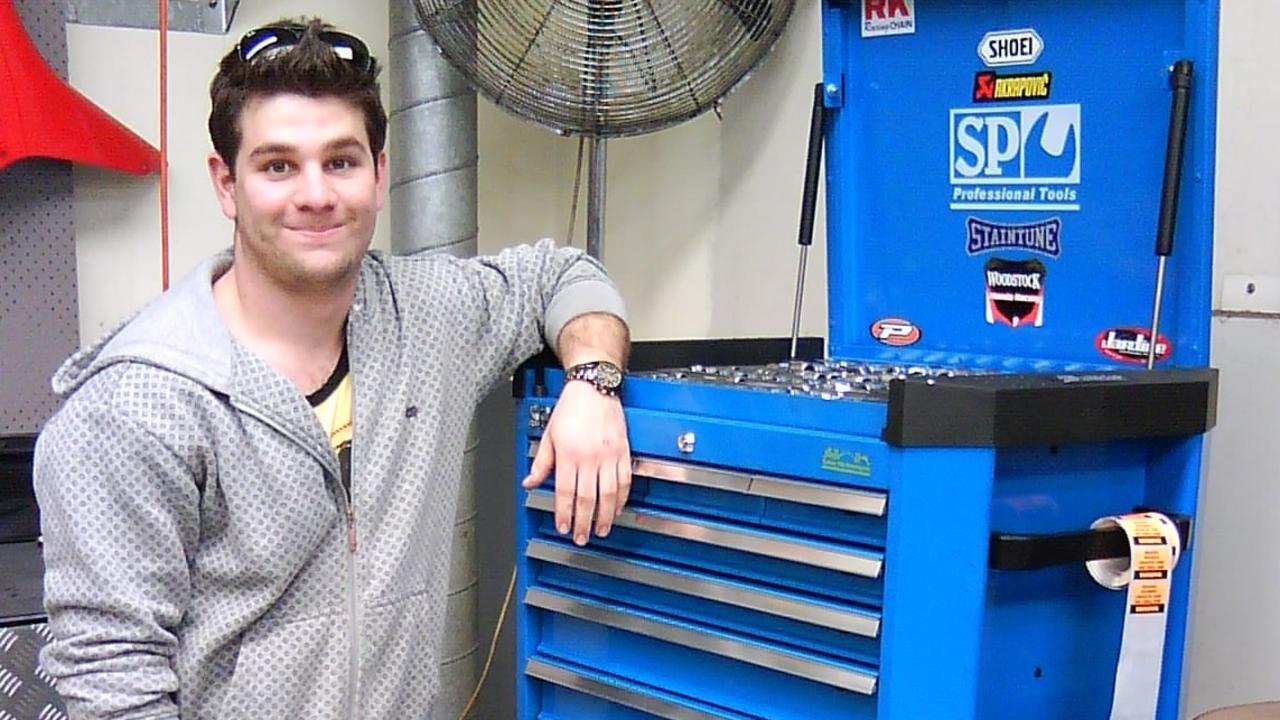
LIFE-AND-DEATH MISTAKE AUSSIES ARE MAKING
Not many people realise how rare it is to die in circumstances that make it possible for them to donate their organs.
The reality is just 2 per cent of all hospital deaths happen in a way where organ donation is possible.
Being found eligible to donate is just the beginning because only half of those who can donate, actually do. In Australia just 510 went on to donate their organs last year.
Even if you ticked the box on your licence registration, this does not necessarily mean your organs are donated.
READ MORE: Crucial oversight costing people their lives
BIG MYTHS AUSSIES BELIEVE
There are many myths that have stopped people from donating their organs — even those who think they are already registered.
Here is the truth about who can be an organ donor, why some fears are unfounded and what you need to do to ensure your wishes are respected.
READ MORE: Don’t let these stop you from saving a life
‘I THOUGHT I WOULD DIE WAITING’
Most teenagers feel as if they have their entire lives ahead of them, but for Julia Furey it was a different story.
The Sydney resident was diagnosed with focal segmental glomerulosclerosis (FSGS) when she was just eight years old and by the time she was 15, her kidneys had started to fail.
“The normal diagnosis for FSGS is that you fall ill in middle age but we all fell ill before the age of 30,” Ms Furey told news.com.au.
Ms Furey and two of her three siblings all have the rare genetic disease, which causes kidney failure.
“A normal kidney will take toxic waste out of the body but ours was effectively poisoning our bodies,” she said.
READ MORE: Doctors thought Julia wouldn’t live to 21
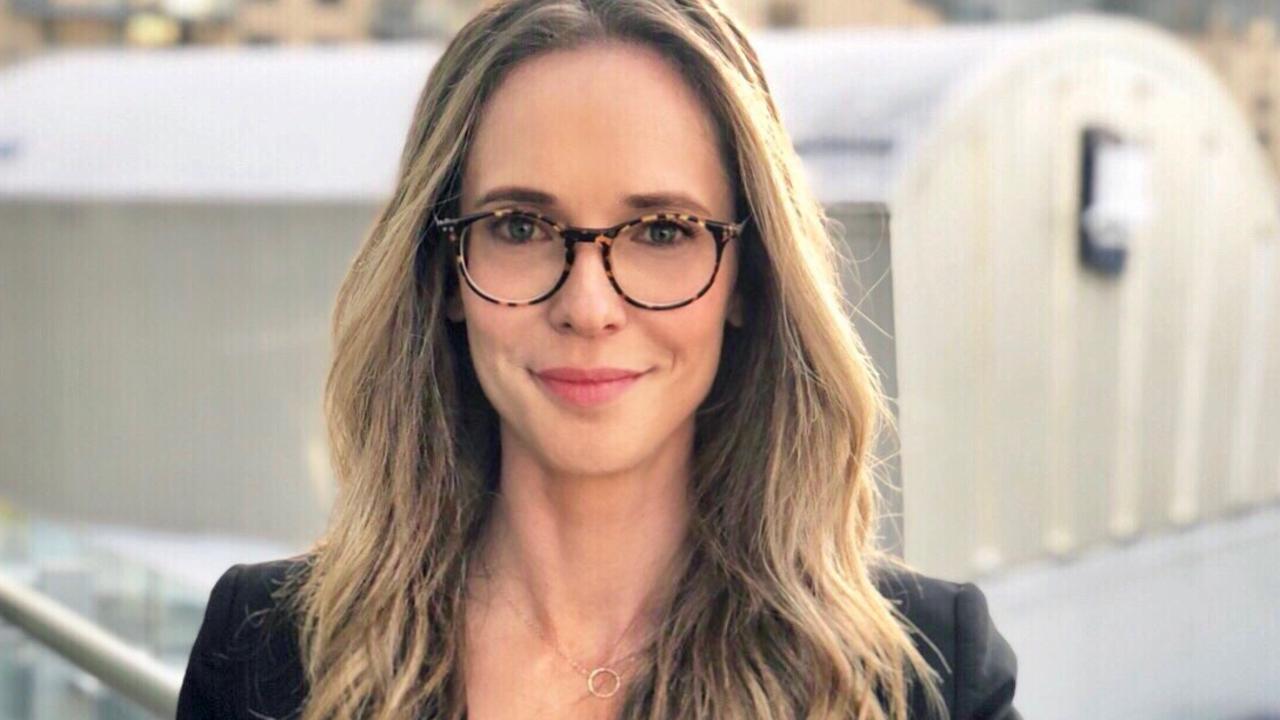
WHY THIS ‘QUICK FIX’ IS NOT A SOLUTION
As the news.com.au campaign for organ donation continues, there’s one argument that keeps being raised — why don’t we have an opt-out system?
As Travis and many others commented on Facebook: “just change it to an opt-out system already”.
While this may seem like a good idea, assuming everyone is willing to be a donor unless they say otherwise could do more harm than good.
Organ and Tissue Authority national medical director Dr Helen Opdam warned against seeing the opt-out system as a “magic solution”.
READ MORE: Opt-out is not a ‘magic solution’
‘I WON’T SEE CHRISTMAS NEXT YEAR’
Kate Hansen has battled for almost six years to stay alive but the 31-year-old accepts she may not live to see Christmas next year.
“I realise not every story has a happy ending and I’ve come to terms with that,” the Melbourne resident told news.com.au.
“Everything is organised but that doesn’t mean I won’t stop trying.”
Kate, also known as “Kitty” to her friends and family, has struggled with her health for years.
READ MORE: Time running out for Kate
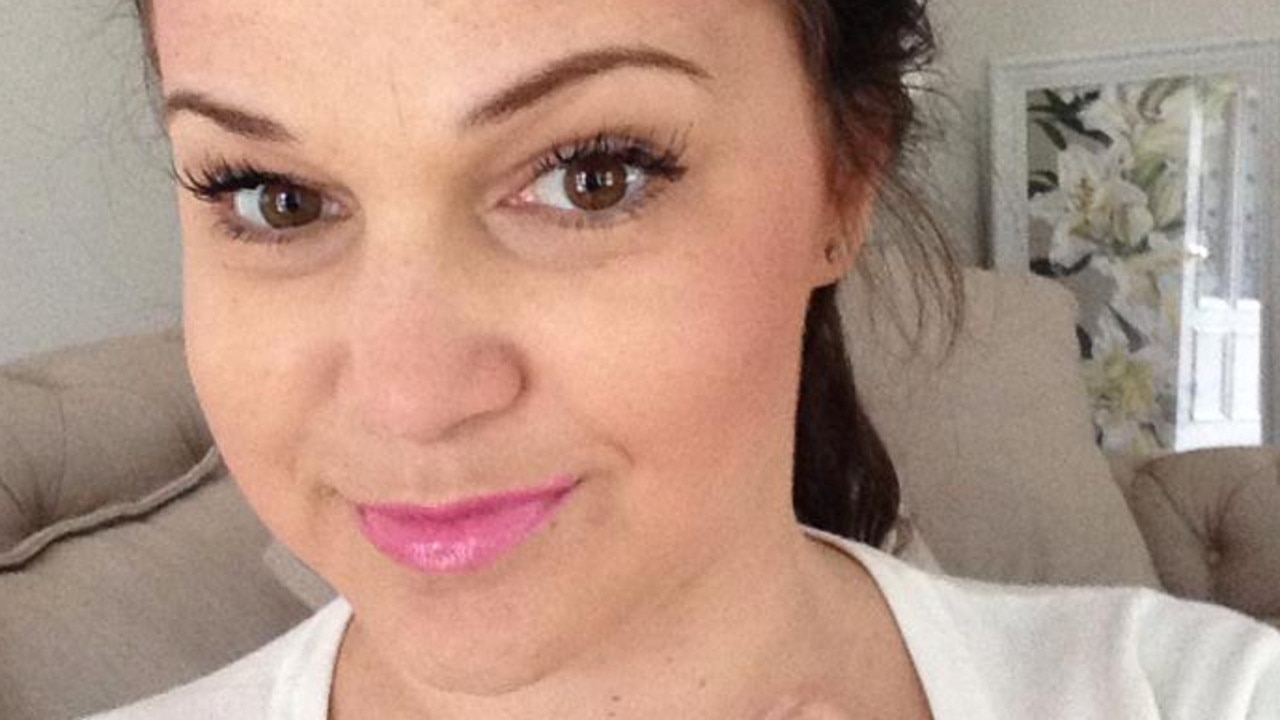
ILLEGAL TRADE BEING FUELLED BY AUSSIES
Desperate Australians may be going overseas for illegal organ transplants in greater numbers than first thought.
Official statistics show just a handful of people each year go overseas for a kidney transplant but a new survey indicates the real numbers may be a lot higher.
To get a more accurate picture, Transplantation Society of Australia and New Zealand (TSANZ) president-elect Toby Coates surveyed members of the transplant community to see how many had dealt with patients who had overseas transplants.
The University of Adelaide professor said official statistics from ANZDATA suggested about 11 people at most had kidney transplants overseas each year, but Prof Coates said his survey showed the numbers were likely higher than this.
READ MORE: Australians going overseas to get transplants
GIRL’S HEARTBREAKING QUESTION: ‘WHY AREN’T I NORMAL?’
The night the call came through, Sarah Lockett had never seen her daughter Montana get up so quickly.
“It was quarter to four but she was in her dressing gown and then said: ‘Let’s go mum. We can do this’,” Sarah said.
Since she was a baby, Montana had been battling ornithine transcarbamylase deficiency (OTC), a rare genetic disease that stops her breaking down protein properly.
The six-year-old had never eaten eggs or meat because consuming too much protein would cause toxic levels of ammonia to build up in her body. Her diet was a constant battle and Montana struggled to get enough nutrients.
Eventually, the decision was made to feed her via a tube in her stomach but these feeds would last hours, sometimes overnight, and she would also have to have them at school.
“She hated school in the end,” Sarah said. “She hated being pulled out of class for a feed. The kids would ask questions and she would cry in the morning before school. She asked: ‘Why aren’t I normal?’”
READ MORE: The decision that changed the life of a six-year-old girl
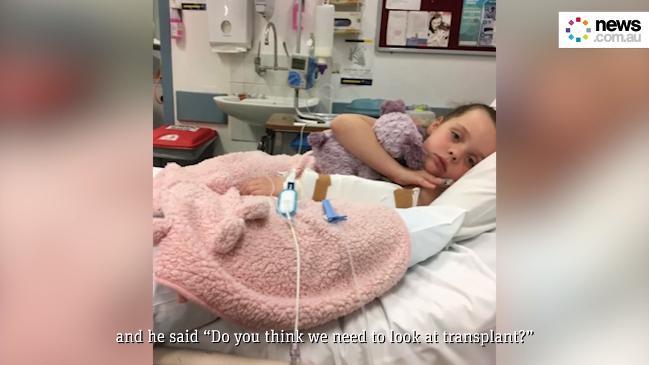
`I’VE HAD 21 OPERATIONS, I WANT A LIFE’
The day Sarah Joyce got sick, she thought she just had a head cold.
But after the 32-year-old started vomiting and burning up with fever, she knew something wasn’t right.
“I kept saying to Mum and Dad, ‘I feel infected.’ It wasn’t like any other cold I’ve ever had. That feeling of infection, it’s so difficult to describe.”
Sarah was taken to Gosford Hospital with extreme flu symptoms in August 2016 and was diagnosed with one of the most deadly strains of meningococcal disease.
“I wasn’t expected to live. Within 12 hours, I was on life support and my family was told I wouldn’t make it through the next 48 hours,” she told news.com.au.
READ MORE: Life on the transplant waiting list
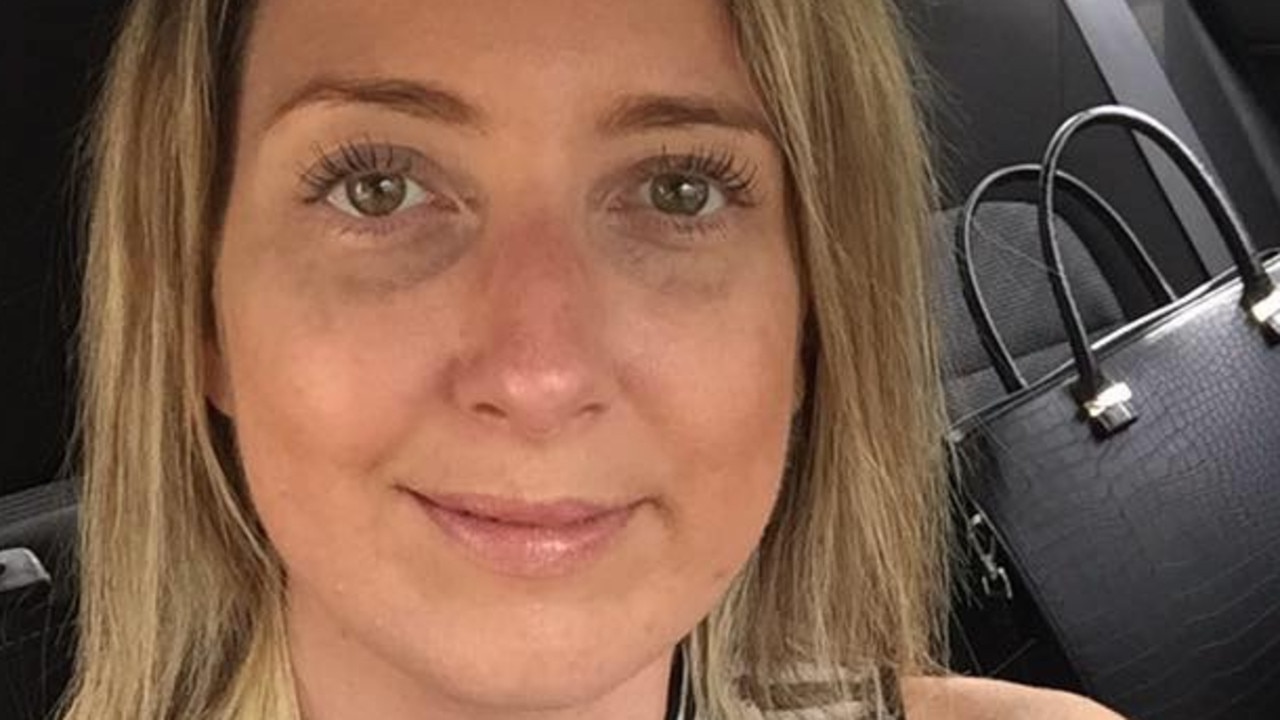
WHAT ORGANS CAN YOU DONATE?
Not everyone wants to think about what happens to their body after they die but what if you could leave a legacy to be proud of?
READ MORE: Which organs can be transplanted and who will benefit?
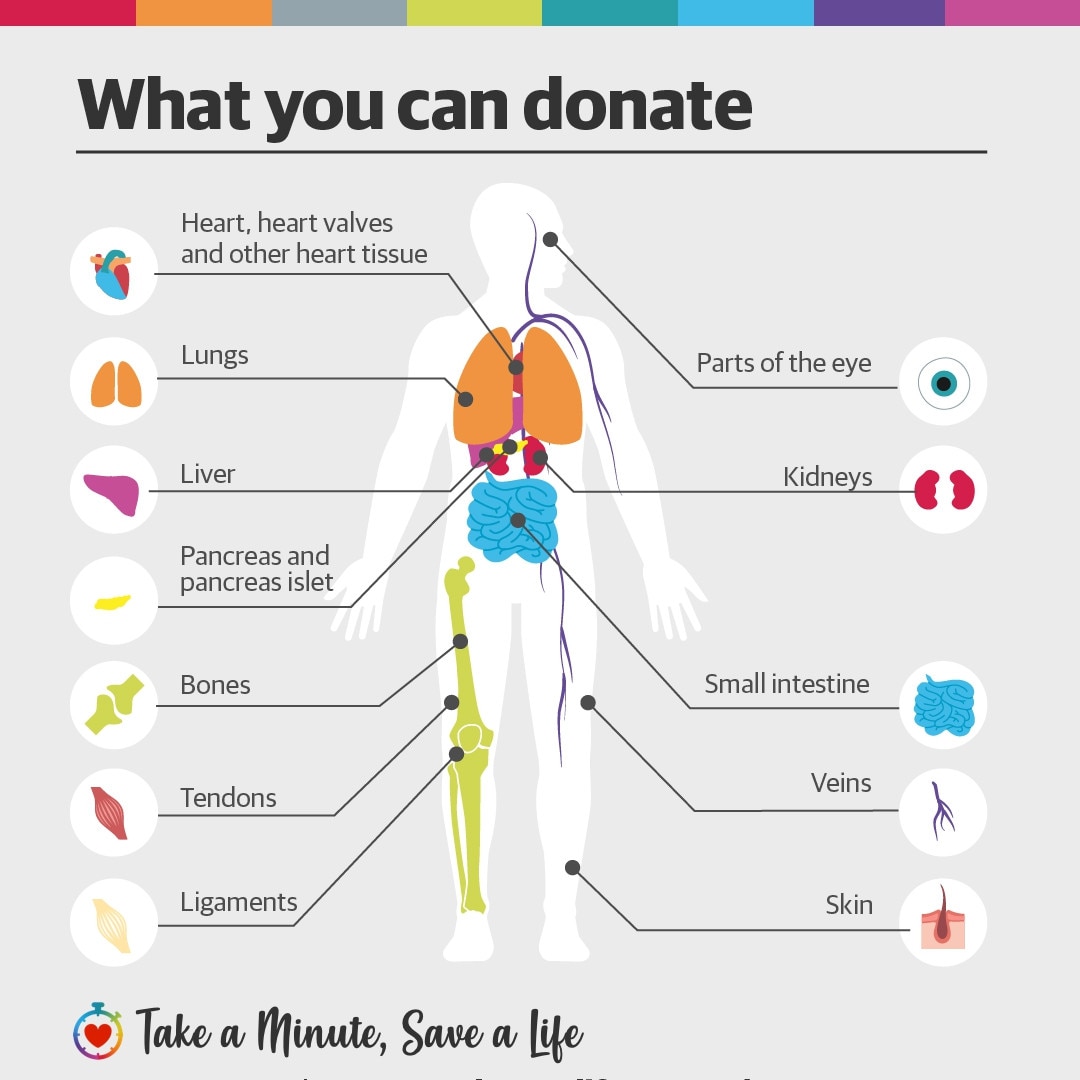
CALLUM’S STORY
I was a fit and active 15-year-old and had never been sick before, yet two weeks after I completed an elite ice hockey academy, I suddenly couldn’t breathe.
It was a shock when I was diagnosed with dilated cardiomyopathy. This potentially life-threatening condition meant my heart was struggling to pump blood because the left ventricle in my heart was enlarged and weakened.
I asked mum if I was going to die. She promised me I wouldn’t.
READ MORE: ‘Doctors said I would never do this’
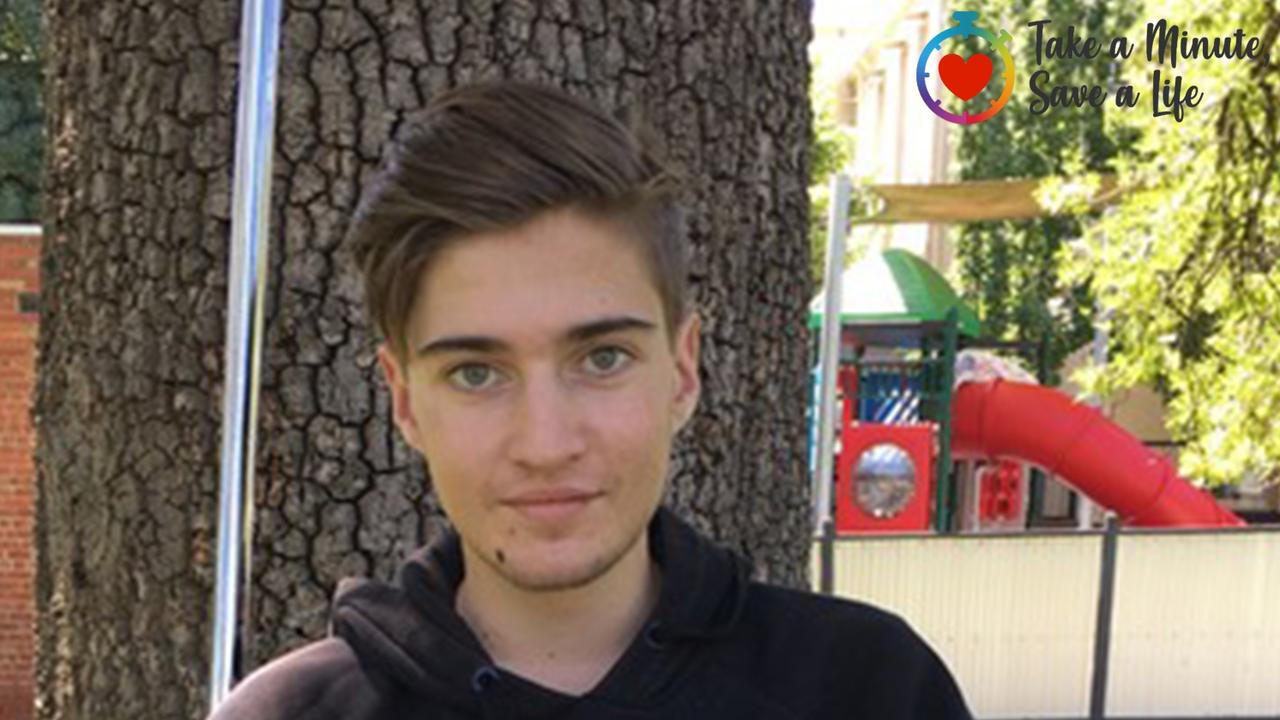
HEARTBREAKING NOTES SHOW WHY YOU SHOULD DONATE
Letters written by organ donor recipients have provided a heartbreaking insight into how much they honour and respect the gift they have been given.
In the letters provided to news.com.au by DonateLife, recipients and their families express the gratitude they have towards those who agreed to donate their organs and how the decision has changed their lives.
READ MORE: ‘You gave me the gift of sight’
